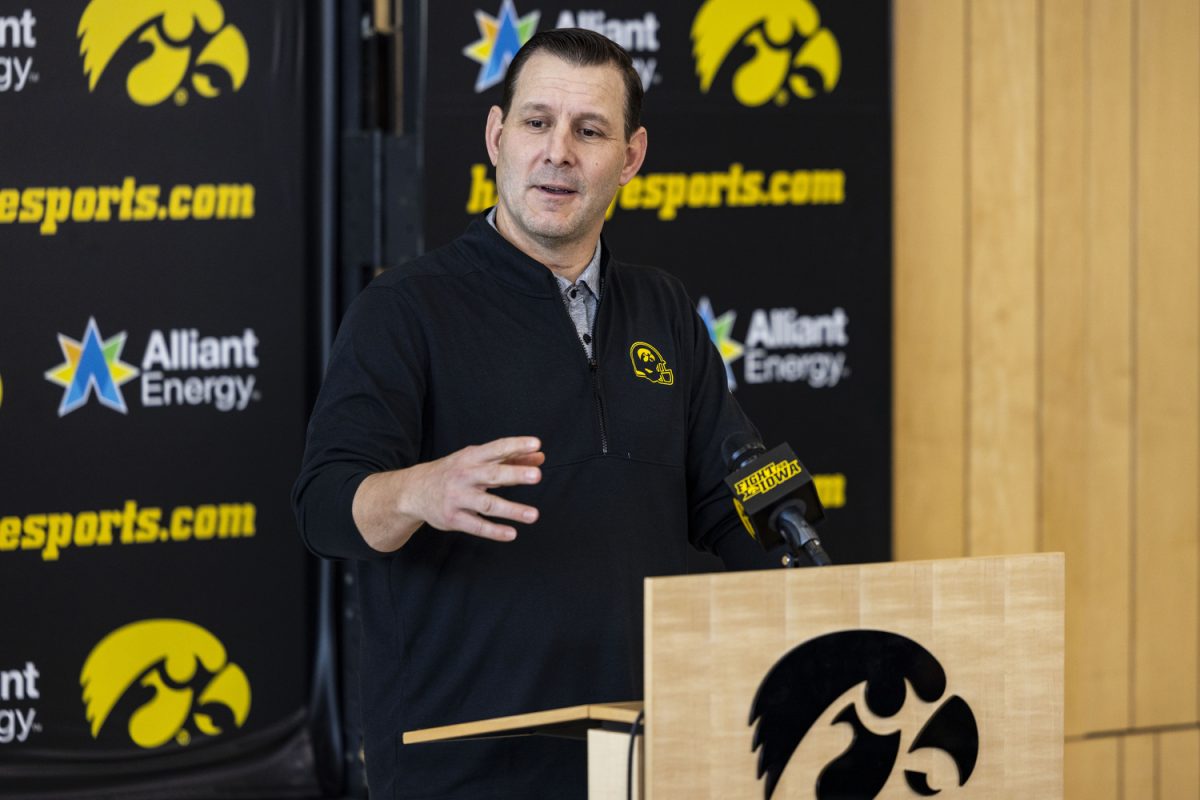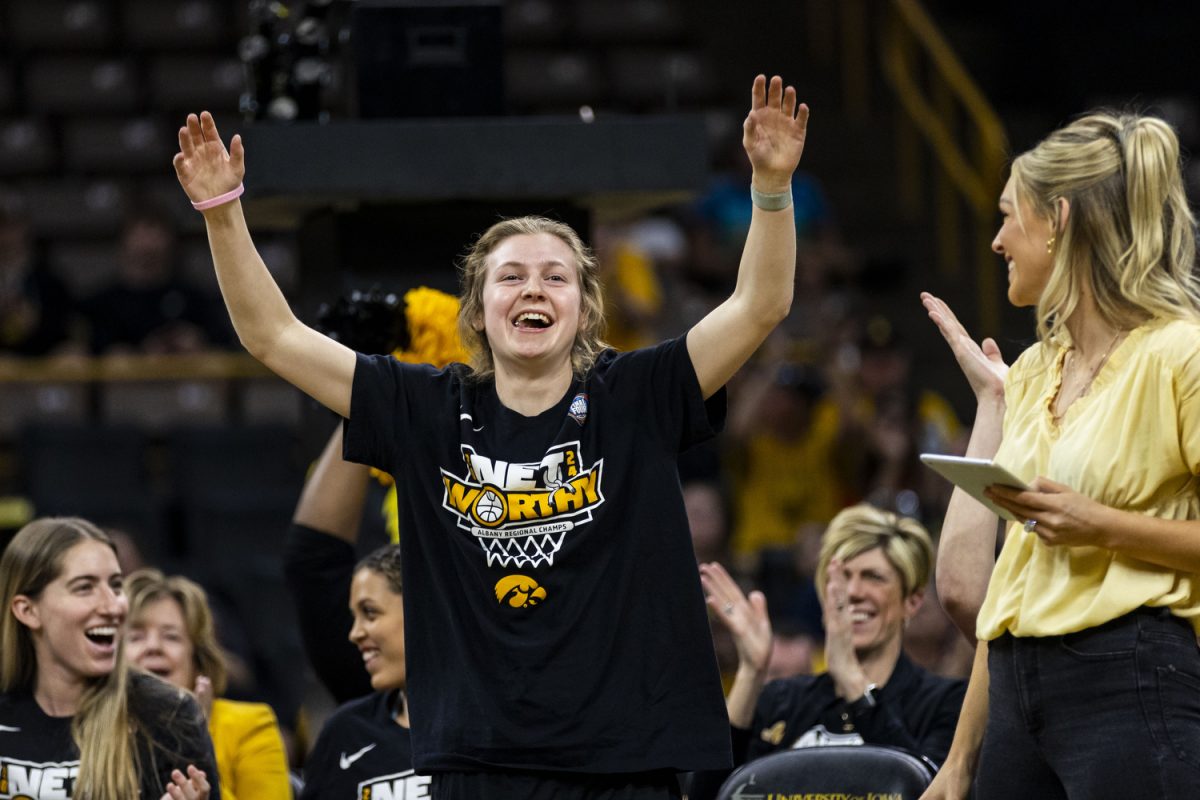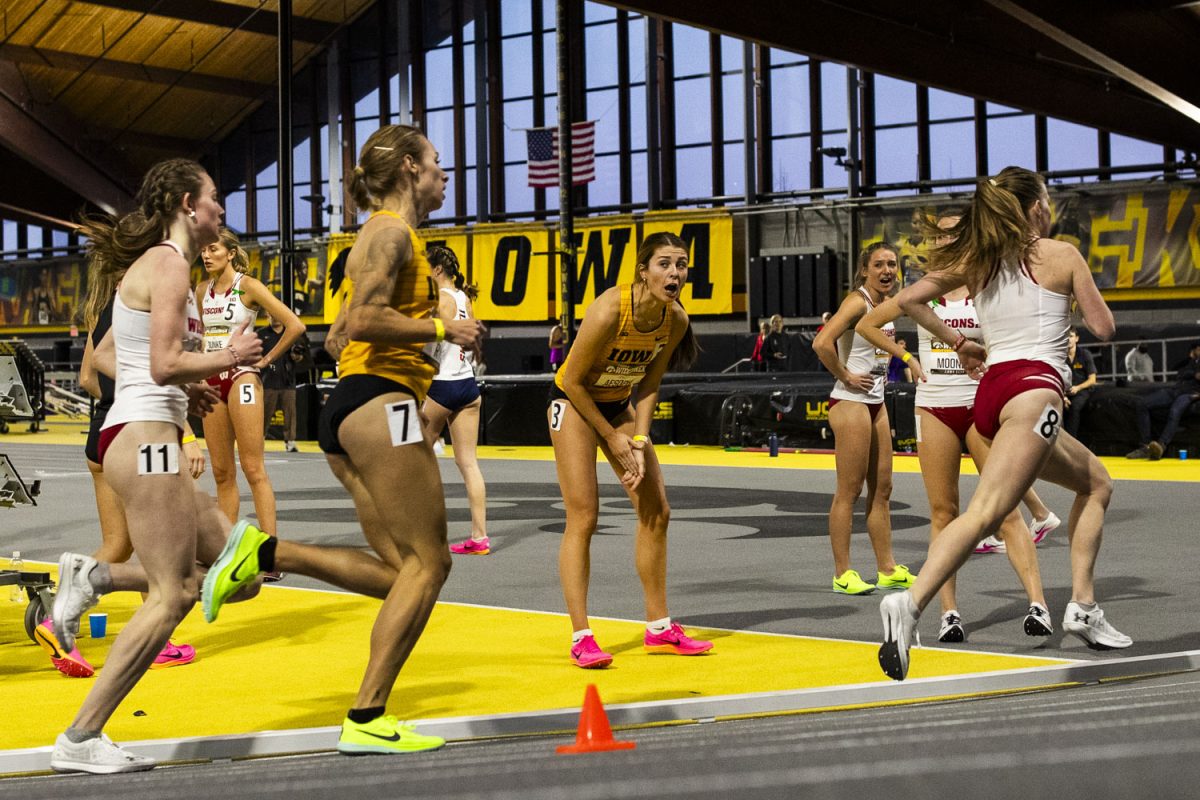The man wasn’t happy. It’s the simplest, and best way to describe Tom Brands on the night of Jan. 13 — because nobody likes losing.
That night, his third-ranked Hawkeyes lost to second-ranked Oklahoma State in Gallagher-Iba Arena, 18-12. The unhappiness was justified.
The Hawks were, at one point, dominating the dual. It was expected that Iowa would start out hot with the match beginning at 125 pounds. After Derek St. John, the nation’s top 157-pounder, scored a decision over the Poke’s Alex Dieringer, Iowa led 12-3.
Then everything fell apart. Or, as Brands would say after the dual, they didn’t finish. The Hawkeye grapplers didn’t win another match that night.
“Finishing was the difference today,” he said in a release following the loss. “It was the difference between winning the matches and the meet.”
Brands nailed it with that statement. His wrestlers didn’t finish their matches like they should have, and in turn, it caused them to let a winnable dual slip through the cracks.
Missing points
It’s tempting to point a finger directly at the heavier guys and blame them for dropping five-straight matches. Most fans probably did. It wouldn’t shock me in the least if Ethen Lofthouse received some hate mail after being on the wrong end of an upset that night when then-12th-ranked Chris Chionuma embraced the limelight with a third-period takedown to seal his victory.
I wouldn’t be surprised if freshman Nathan Burak caught some flak because he couldn’t finish his shots against No. 5-ranked Blake Rosholt, which would’ve been a bigger upset than Chionuma’s. But, just like Brands said, he couldn’t finish.
But there’s more to the point here than to just blame the guys who lost. There was a preconceived notion before the dual that Matt McDonough had the best chance at scoring a bonus-point victory for the Hawks. He didn’t and left a point or two off the board.
Tony Ramos squeaked out a 1-point victory. It was against his first ranked opponent of the season, no less, but he didn’t come out with the fiery explosiveness that we’re all accustomed to seeing. Points could’ve been missed there.
Mark Ballweg, at 141, won by 5 when he likely could’ve scored a few more takedowns throughout the match. He took down Okie State’s unranked Julian Feikert in every period. Why not just play takedowns with him and break his spirit for a major?
It takes a whole team
Wrestling is a team sport. This is often lost in the riffs of grappling, because on the mat, it’s one-on-one. One guy against just one other guy. But those single wrestlers are part of a team, and they are aware that their performance dictates a team performance.
If a quarterback makes a perfect pass, but the receiver drops the ball, the team suffers and goes nowhere. In much the same way, if wrestlers don’t take advantage of the opportunities in front of them (i.e., bonus-point victories and takedowns in the waning seconds of a match to win), the team takes a hit. This is what happened on that January night in Stillwater.
This is not to say that the team should be worried — the squad still has at least five dual-meets in front of it. What’s important is what happens in March. That is when the bonus points, pins, and upsets need to happen the most — Brands will be the first to tell you that a national championship is within reach.
However, there’s some work to be done. But if Iowa can’t nail down these victories when the pressure isn’t at it’s highest, what makes you think they’re going to be able to do it when the spotlight’s on them in Des Moines?






